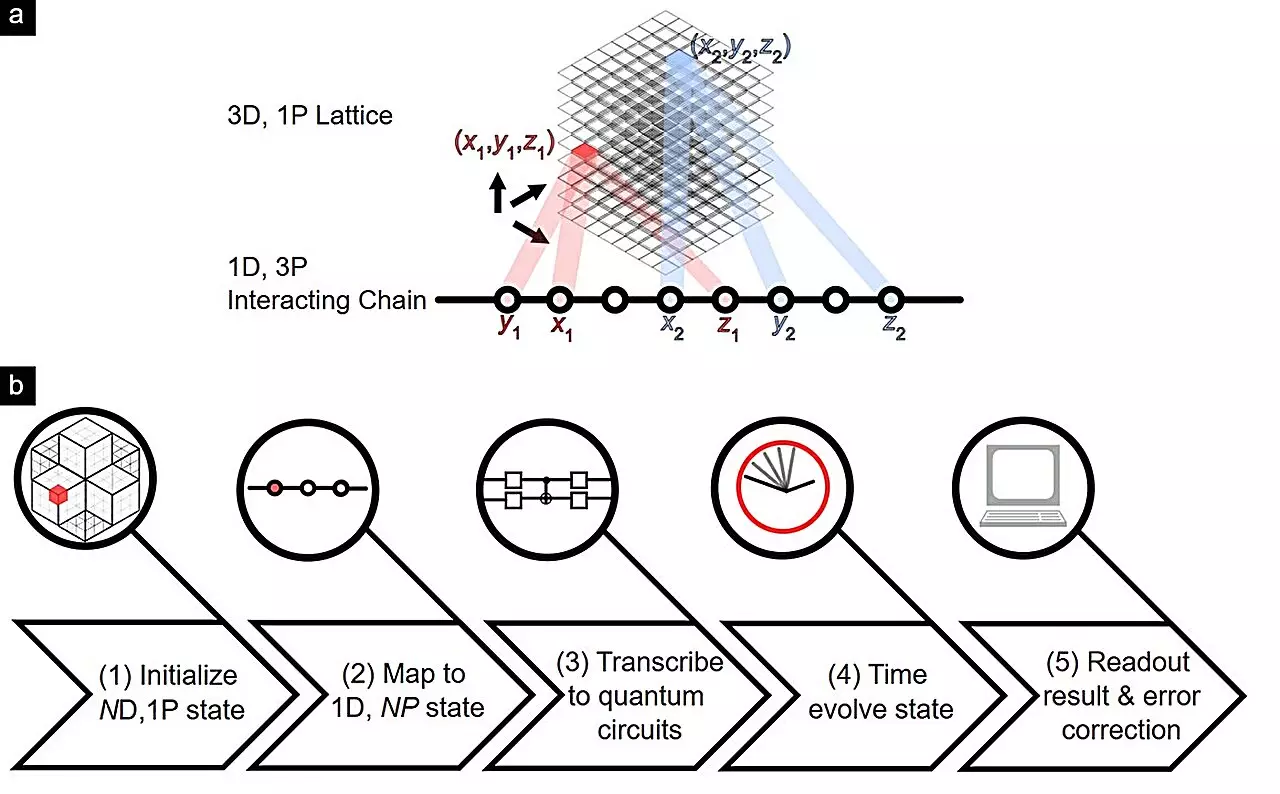Recent research conducted by the National University of Singapore (NUS) has delved into the realm of higher-order topological (HOT) lattices using digital quantum computers. This study represents a significant advancement in the understanding of quantum materials and their potential applications in various technologies.
The study of topological states of matter, including HOT lattices, has garnered widespread interest within the scientific community. Topological insulators, which conduct electricity only on their surfaces or edges, have sparked curiosity due to their unique properties. These materials exhibit robust quantum states that offer significant advantages in terms of signal transmission and transport technology.
Assistant Professor Lee Ching Hua and his team at NUS have developed a scalable method for encoding large, high-dimensional HOT lattices on digital quantum computers. By leveraging the information storage capabilities of quantum computer qubits, the researchers have minimized resource requirements while ensuring noise resistance. This approach marks a significant step towards simulating advanced quantum materials in a more efficient and accurate manner.
Through the use of many-body quantum interactions, the research team has achieved unprecedented accuracy in the simulation of higher-order topological lattices. Despite the challenges posed by current quantum devices, advanced error mitigation techniques have enabled the measurement of topological state dynamics with remarkable precision. This breakthrough highlights the potential of quantum technology in exploring new frontiers in material engineering.
The ability to simulate complex HOT lattices opens up new avenues for research in quantum materials and topological states. By exploring the intricate signatures of topological materials on quantum computers, researchers can uncover new insights and potentially achieve true quantum advantage in the future. This research paves the way for further exploration of advanced quantum materials and their applications in various technological fields.
The study conducted by NUS researchers represents a significant advancement in the realm of quantum materials research. By leveraging digital quantum computers to simulate higher-order topological lattices with unprecedented accuracy, the research team has opened up new possibilities for exploring the potential of quantum materials in various applications. This research not only enhances our understanding of quantum states but also points towards a future where quantum advantage could be realized in material engineering.


Leave a Reply